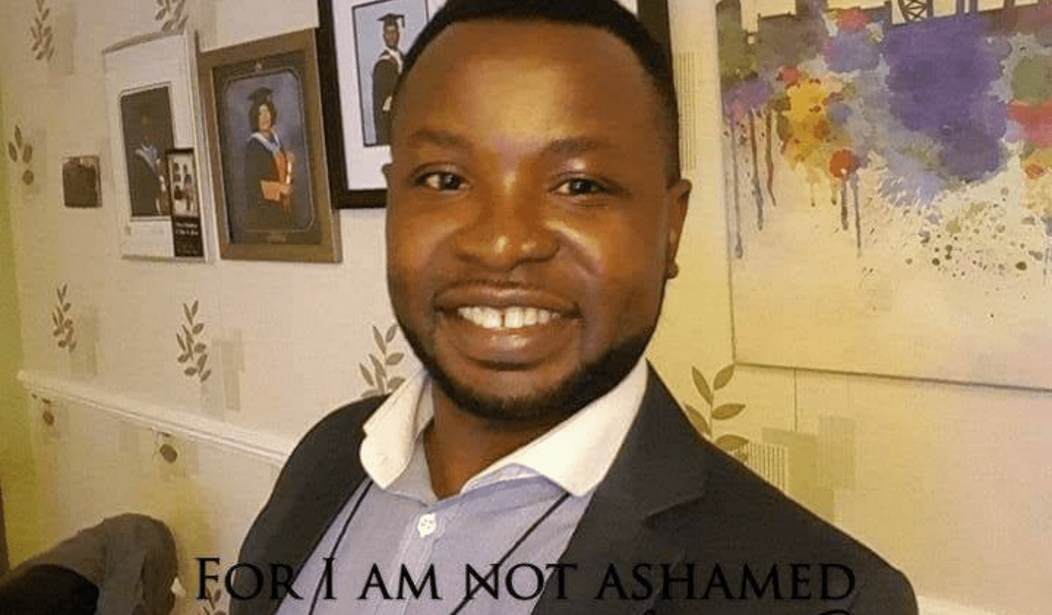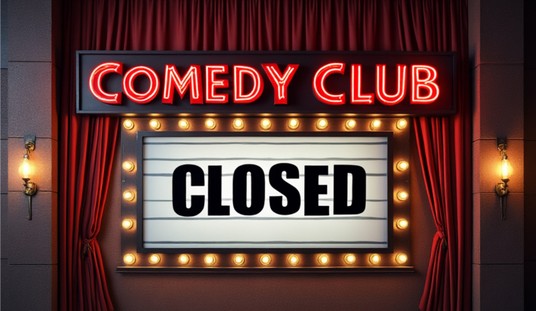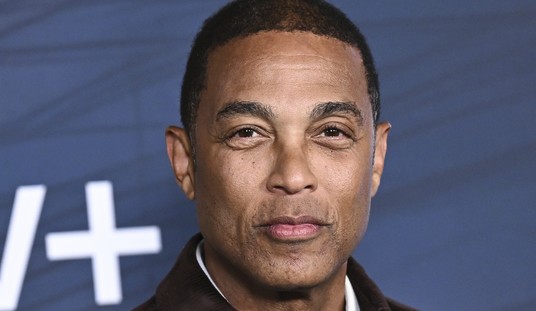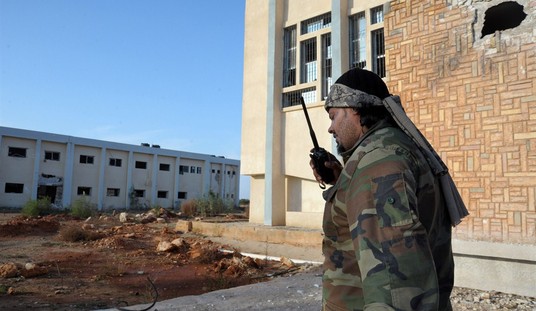On Wednesday, a British appeals court upheld the case of Felix Ngole, a Christian student expelled for posting Bible verses on Facebook. Sheffield University ruled that expressing a religious view that condemns homosexual activity violated the rules for the social work profession. Since Ngole was studying for a master of arts in social work, his expression of biblical beliefs on homosexuality proved grounds for dismissal, the university claimed.
In 2015, Ngole made comments supporting Kim Davis, the Kentucky county clerk who refused to issue same-sex marriage licenses. He wrote that “same sex marriage is a sin whether we like it or not. It is God’s words and man’s sentiments would not change His words.” Ngole also quoted various Bible passages to support this position.
After a judge upheld the expulsion in 2017, Ngole defended himself in comments to PJ Media. “It is a clear attempt by liberal elites to silence anything that has to do with traditional Christian beliefs,” he said. “Free speech can only be what it is if you agree with everything they agree with. They will come hard at you if you share conservative views — that is a taboo.”
On Wednesday, three appeals court judges — Lord Justice Stephen Irwin, Lord Justice Charles Haddon-Cave, and Sir Jack Beatson — ruled that the university “wrongly confused the expression of religious views with the notion of discrimination. The mere expression of views on theological grounds (e.g. that ‘homosexuality is a sin’) does not necessarily connote that the person expressing such views will discriminate on such grounds.”
The case hinged on whether the Health and Care Professions Council (HCPC) guidance prohibiting “comments … [which] were offensive, for example if they were racist or sexually explicit” applied in this case, justifying Ngole’s expulsion. The university consistently argued that Ngole’s expression of Bible-based beliefs on homosexual activity proved he would discriminate against LGBT people, regardless of the the lack of any evidence showing such discrimination.
In a telling passage, the judges noted that the university’s lawyer, Sarah Hannett, “made it clear that any expression of disapproval of same-sex relations — however mildly expressed — which could be traced back to the person making it, would be a breach of the professional guidelines for social workers as far as the University was concerned.”
This was an effective blanket ban on any religious speech critical of homosexuality. The ban did not even have a strong limiting principle, the judges ruled. While the university claimed Ngole was entitled to hold the Bible-based view that homosexual activity is a sin, they claimed he could not express such a view publicly.
Even private speech could be subject to censure, however, the judges pointed out. “What if a private expression of views was overheard and reported? The postings in question here were found following a positive internet search by the anonymous complainant. What if such statements had been revealed by a person who had attended a church service or Bible class?” they asked. According to the university’s policy, comments made in private but overheard and reported, or otherwise traced back to the speaker, would violate the HCPC guidelines, constitute discrimination, and be grounds for expulsion.
“In our view the implication of the University’s submission is that such religious views as these, held by Christians in professional occupations, who hold to the literal truth of the Bible, can never be expressed in circumstances where they might be traced back to the professional concerned,” the judges ruled. “And if that proposition holds true for Christians with traditional beliefs about the literal truth of the Bible, it must arise also in respect of many Muslims, Hindus, Buddhists and members of other faiths with similar teachings.”
“If social workers and social work students must not express such views, then what of art therapists, occupational therapists, paramedics, psychologists, radiographers, speech and language therapists: all professions whose students and practitioners work under the rubric of the same general regulations?” they added. “What of teachers and student teachers, not covered by the HCPC regulations, but by a similar regulatory regime? For present purposes it is not easy to see a rational distinction between these groups.”
“In practice, if such were a proper interpretation of professional regulation supported by law, no such believing Christian would be secure in such a profession, unless they resolved never to express their views on this issue other than in private,” the judges ruled. Even in private, there would be no guarantee someone snooping on the Christian social worker could not report Bible quotes mentioned in secret.
Only a Christian’s Bible-based thoughts would be safe. Even then, in a world of smartphones and with the potential for surveillance, a Christian’s sleeptalking may condemn him.
Such a restriction seems fitting only in an Orwellian dystopia.
It seems the university set out to find discrimination where none existed.
As the judges wrote, Ngole “had never been shown actually to have acted in a discriminatory fashion. He denied having done so and stated he would never do so. That was accepted by the University. It was not said that he would discriminate in the future. He stated, without contradiction, that he had dealt with those in homosexual relationships in the past, and done so properly. There was no evidence any actual or potential service user had read the postings. There was no evidence of any actual damage to the regulation of the profession.”
This case was worse than that of Jack Phillips, who refused to use his artistic talents to bake custom cakes celebrating same-sex marriage and transgender identity. While Phillips gladly served any person in his shop — including LGBT people — he was falsely accused of discrimination for his free speech stance. Ngole was also falsely accused of discrimination, even though he never undertook any action whatsoever, but only expressed his beliefs based on the Bible.
Worse, the university assumed that Ngole was “unteachable,” because he objected to the ban on religious speech.
While the court upheld Ngole’s case against this horrific expulsion, the university’s rush to judgment against him and lower court rulings against him reveal a horrifying bias against Bible-based religious beliefs that disagree with LGBT activism.
Mere words posted on Facebook were construed as discrimination, then a Christian falsely accused of discrimination was considered unteachable for defending himself, and courts actually upheld an Orwellian ban on religious speech that had no limiting principle.
Justice was finally done in this case, but the very fact it took so long should terrify anyone who values free speech or religious freedom. Brits, Americans, and those who value freedom across the world should note this case and guard against this kind of intolerance. Sadly, it seems LGBT activists are intent on demonizing dissent and will not learn from such examples.
Follow Tyler O’Neil, the author of this article, on Twitter at @Tyler2ONeil.









Join the conversation as a VIP Member